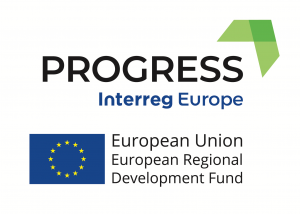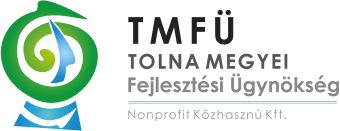
Transferibility of PROGRESS Good Practices
Since PROGRESS has commenced, three topics were subject of an in-depth exchange of experience between partners, such as:
- the costs and benefits of ecosystem services derived from land use, or simply put, the evaluation of goods and services provided by nature. This is an increasingly important matter in terms of the cornerstones of environmental policies as well as bringing about a change to foster better management of environmental resources, which is also backed by environmental accounts, that allow tracking and evaluating the results of environmental policies;
- design of national, regional and local policies, strategies with ecosystem services integrated as horizontal principles;
- innovative financial schemes and mechanisms based on payments for ecosystem services.
During the discussion of these topics 19 Good Practices were identified and presented within the partnership. We are focusing on one which can feed in to the Environmental and Energy Efficiency Operational Programme Plus as there is a strong link between the GP and the priorities of the policy instrument. The current version of EEEOP Plus was delivered to be subject of public dialougue and its 1st priority (water management and mitigation of disaster risks) and 4th priority (renewable energy) are strongly linked to ecosystem services. In the period between 2013 and 2020, the EEEOP 4.3.0-CHOP 15-2016-00001 already made a thorough analysis of ecosystems services in Hungary, including some of the Good Practices included in PROGRESS as well, such as SITxell.
In the following, we will discuss a Good Practice that is well in line with goals of EEEOP Plus, and a number of lessons were learnt during its implementation in Ireland, therefore it can be a very useful guide for a similar project or initiative in Hungary, that is also possible to be financed by EEEOP Plus. The All-Ireland Pollinator Plan is a plan to foster behavioural change by offering information and raising awareness through a selection of simple, yet robust measures. The main goal of the initiative is to support small-scale changes in local environment to protect pollinators, such as changing mowing patterns. The main reason behind the population decrease of pollinators is the shrinking area of natural and semi-natural habitats, therefore the key message and element of the project is to provide reliable, evidence-based information on the importance of biodiversity for a selected set of target groups along with practical know-hows applicable by private individuals and institutions. The AIPP is a decentralized initiative coordinated by a Steering Group, but operates without a permanent budget or any kind of organizational framework or legal form. The main tools of AIPP are guidelines, know-hows and the All-Ireland Pollinator Plan itself, a strategy outlining the goals of the activities for a 5-year long period, targeting mostly citizens, public institutions, and other organizations as well as now having specific recommendations for agriculture, an important player in biodiversity. Due to strong public support, these recommendations also can appear on policy-level as well. The program is open to all interested parties and by the contribution of several national body several local initiatives appear in throughout all Ireland. Based on the 2019 report of AIPP, 108 public organization, 230 companeis and even more citizens support the plan along with implementing specific measures to support pollinators. The adaptation and transferability potential of this project is rather high all materials linked to AIPP being publicly available for that reason making a similar initiative easy to implement in Hungary as well. Appropriate partnership to coordinate the project, to disseminate information and results achieved, and IT-support (for example for collecting feedback and local projects, such as the map tool on the website of AIPP: https://pollinators.biodiversityireland.ie/). Adapting and transferring the existing tools, creating a corresponding and adequate organizational structure, and even implementing pollinator-measures as a horizontal principle in EEEOP Plus can highly contribute to the protection of pollinators in Hungary as well, and also looks like a proper step forward, especially given that EEEOP Plus itself also set a goal to stop the extinction of species by supporting coordinated actions. Information and dissemination is a key activity in that, as it is also referred to in the OP, as the lack of information can lead to decisions that are not the environmentally advantageous, and it is time to change that.
